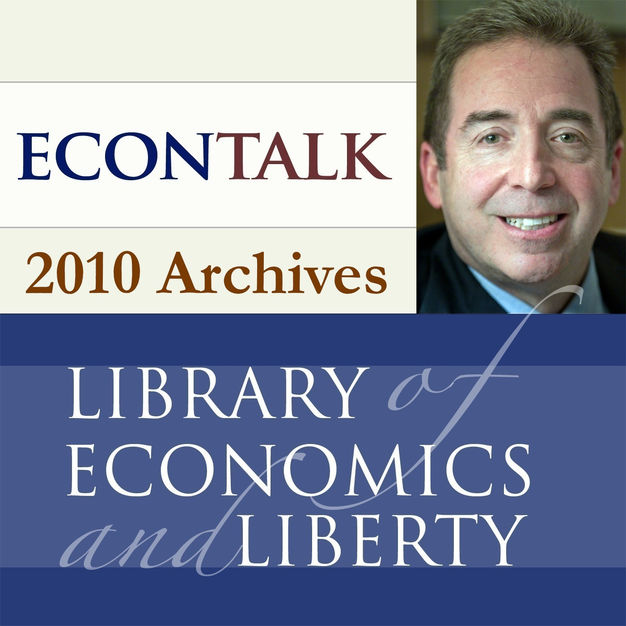
EconTalk Archives, 2010
EconTalk: Russ Roberts, Library of Economics and Liberty
EconTalk is an award-winning weekly talk show about economics in daily life. Featured guests include renowned economics professors, Nobel Prize winners, and exciting speakers on all kinds of topical matters related to economic thought. Topics include health care, business cycles, economic growth, free trade, education, finance, politics, sports, book reviews, parenting, and the curiosities of everyday decision-making. Russ Roberts, of the Library of Economics and Liberty (econlib.org) and George Mason U., draws you in with lively guests and creative repartee. Look for related readings and the complete archive of previous shows at EconTalk.org, where you can also comment on the podcasts and ask questions.
- 1 hour 15 minutesBoettke on MisesPete Boettke of George Mason University talks with EconTalk host Russ Roberts about the life, work, and legacy of Ludwig von Mises. Boettke outlines Mises's most important contributions to economics--business cycle theory, the socialism/calculation debate, and the application of economics to a wide range of behavior beyond the financial. Boettke discusses how Mises fits into the Austrian tradition and how he influenced scholars who came after him. The conversation closes with a discussion of Mises's most important works and suggests which books and articles are most accessible to a beginner who wants to explore Mises's ideas.27 December 2010, 11:30 am
- 1 hour 1 minuteNocera on the Crisis and All the Devils Are HereJoe Nocera, New York Times columnist and co-author with Bethany McLean of All the Devils Are Here, talks with EconTalk host Russ Roberts about the origins of the financial crisis. Drawing on his book, Nocera identifies many people he considers devils for contributing to the crisis and a few angels who tried but failed to stop it. The discussion covers the history and development of securitization and the peculiar incentives created by securitization and the relative lack of regulation of the securitization process. The conversation also includes a discussion of whether past bailouts contributed to the crisis.20 December 2010, 11:30 am
- 1 hour 59 secondsAbdallah on Hair and Running a Small BusinessWafaya Abdallah of Oasis Hair Salon in Rockville, Maryland talks with EconTalk host Russ Roberts about the challenges and rewards of running a small business. Abdallah discusses her career path from would-be lawyer to owning her own salon with many employees and a management style that is different from the traditional one in her business. She discusses the economics of hair-cutting, how she motivates her employees to be part of the team, the openness of the salon's financial situation, the educational training she offers, and the ways she works with employees to motivate and inspire. You'll also learn how much her scissors cost.13 December 2010, 11:30 am
- 1 hour 18 minutesSelgin on the FedGeorge Selgin, of the University of Georgia, talks with EconTalk host Russ Roberts about whether the creation of the Federal Reserve in 1913 has been a boon or a bust for the U.S. economy. Drawing on a recent paper by William Lastrapes and Lawrence White recently released by the Cato Institute, "Has the Fed Been a Failure?" Selgin argues that the Fed has done poorly at two missions often deemed to justify a central bank: lender of last resort and smoother of the business cycle. Selgin makes the case that avoiding bank runs and bank panics does not require a central bank and that contrary to received wisdom, it is hard to argue that the Fed has smoothed the business cycle. Additional topics discussed include whether the Fed has the information to do its jobs well, the role of the Fed in moral hazard, and the potential for the gold standard to outperform the Fed.6 December 2010, 11:30 am
- 1 hour 18 minutesKelly on Technology and What Technology WantsKevin Kelly, author of What Technology Wants, talks with EconTalk host Russ Roberts about technology and the ideas in the book. Kelly argues that technology is best understood as an emergent system subject to the natural forces underpinning all emergent systems. He argues that any technology creates benefits and costs but that the benefits typically outweigh the costs (perhaps by a small amount) leading to human progress. This is a wide-ranging conversation that includes discussion of the Unabomber, the Amish, the survival of human knowledge, and the seeming inevitability of the advancement of knowledge. The conversation closes with a discussion of the potential for technology to make an enormous leap in self-organization.29 November 2010, 11:30 am
- 1 hour 10 minutesPhillipson on Adam SmithNicholas Phillipson, author of Adam Smith: An Enlightened Life, talks to EconTalk host Russ Roberts about the life of Adam Smith. Drawing on his recent biography of Smith, Phillipson discusses his intellectual roots, his intellectual journey, and what we know of his influences and achievements. Phillipson argues that Smith was shy, ambitious and very well-liked. He highlights the influence of Francis Hutcheson and David Hume on Smith's thinking. Phillipson gives his take on how the ideas of The Theory of Moral Sentiments mesh with The Wealth of Nations and argues that the Theory of Moral Sentiments was a response to Mandeville and Rousseau.22 November 2010, 11:30 am
- 1 hour 1 minuteRobert Frank on InequalityRobert Frank of Cornell University talks with EconTalk host Russ Roberts about inequality. Is there a role for public policy in mitigating income inequality? Is such intervention justified or effective? The conversation delves into both the philosophical and empirical evidence behind differing answers to these questions. Ultimately, Frank argues for a steeply rising tax rate on consumption that would reduce disparities in consumption. This is a lively back-and-forth about a very timely topic.15 November 2010, 11:30 am
- 1 hour 4 minutesDon Boudreaux on China, Currency Manipulation, and Trade DeficitsDon Boudreaux of George Mason University talks with EconTalk host Russ Roberts about Chinese exchange rate policy and the claim that China keeps the value of its currency artificially low in order to boost exports to the United States and reduce U.S. exports. Boudreaux argues that regardless of whether China is manipulating its currency, inexpensive Chinese imports are generally good for the United States. He also points out that manufacturing output in the United States has been thriving despite claims that the United States is being "hollowed out." The conversation also includes a discussion of whether Chinese holdings of U.S. Treasuries threaten the United States.8 November 2010, 11:30 am
- 1 hour 4 minutesQuiggin on Zombie EconomicsJohn Quiggin of Crooked Timber and the author of Zombie Economics talks with EconTalk host Russ Roberts about ideas in economics that should stay dead and buried. Quiggin argues that many economic theories such as the Great Moderation, the efficient markets hypothesis and others have been discredited by recent events and should be relegated to the graveyard. Roberts challenges some of Quiggin's claims and wonders whether proposed alternatives might do even worse than the policies Quiggin is criticizing. Much of the conversation focuses on the role of government in the financial sector and how that might be improved going forward.1 November 2010, 11:30 am
- 1 hour 8 minutesHazlett on Apple vs. GoogleThomas Hazlett of George Mason University talks with EconTalk host Russ Roberts about the growing rivalry between Apple and Google. It is commonly argued that Apple with its closed platform and tight control from the top via Steve Jobs is making the same mistake it made in its earlier competition with Microsoft. Google on the other hand is lauded for its open platform and leveraging of a large number of suppliers for its Android phone, for example. Hazlett, drawing on his recent article in the Financial Times, argues that these arguments fail to recognize the different competitive advantages of Apple and Google and the implications of those advantages for the companies' respective strategies. The conversation concludes with a discussion of the move to application-based web browsing such as Facebook, Twitter, and the implications for Google.25 October 2010, 11:30 am
- 59 minutes 3 secondsRidley on Trade, Growth, and the Rational OptimistMatt Ridley, author of The Rational Optimist, talks with EconTalk host Russ Roberts about why he is optimistic about the future and how trade and specialization explain the evolution of human development over the millennia. Ridley argues that life is getting better for most of the people on earth and that the underlying cause is trade and specialization. He discusses the differences between Smith's and Ricardo's insights into trade and growth and why despite what seems to be strong evidence, people are frequently pessimistic about the future. Ridley also addresses environmental issues.18 October 2010, 11:30 am
- More Episodes? Get the App
- http://www.EconTalk.org
- en-us
Your feedback is valuable to us. Should you encounter any bugs, glitches, lack of functionality or other problems, please email us on [email protected] or join Moon.FM Telegram Group where you can talk directly to the dev team who are happy to answer any queries.
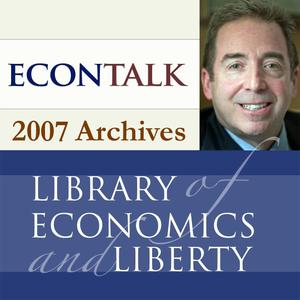 EconTalk Archives, 2007
EconTalk Archives, 2007
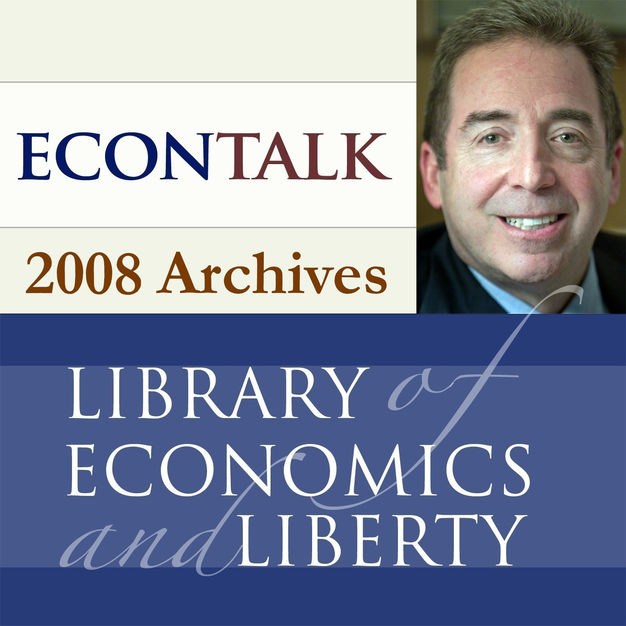 EconTalk Archives, 2008
EconTalk Archives, 2008
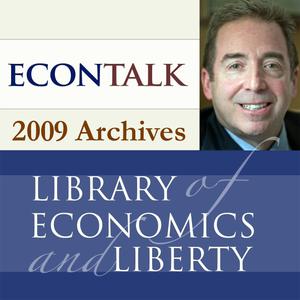 EconTalk Archives, 2009
EconTalk Archives, 2009
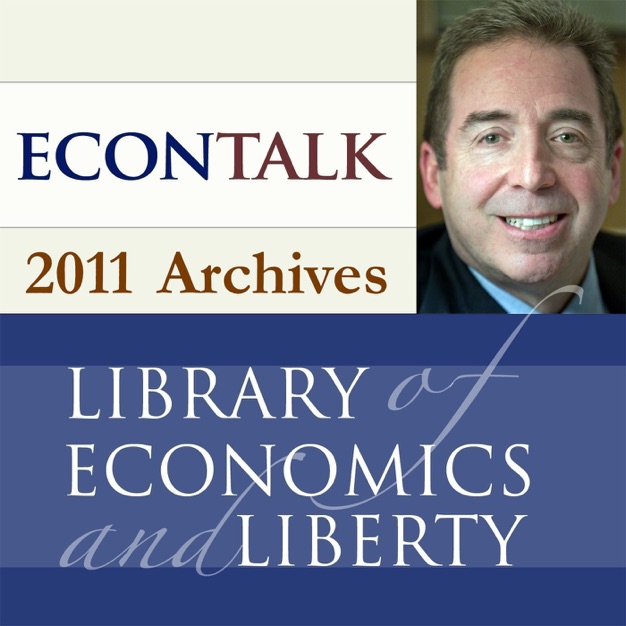 EconTalk Archives, 2011
EconTalk Archives, 2011
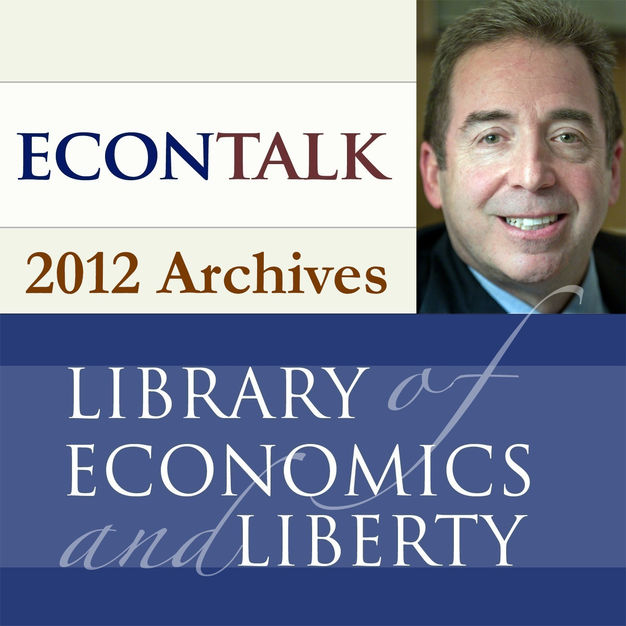 EconTalk Archives, 2012
EconTalk Archives, 2012
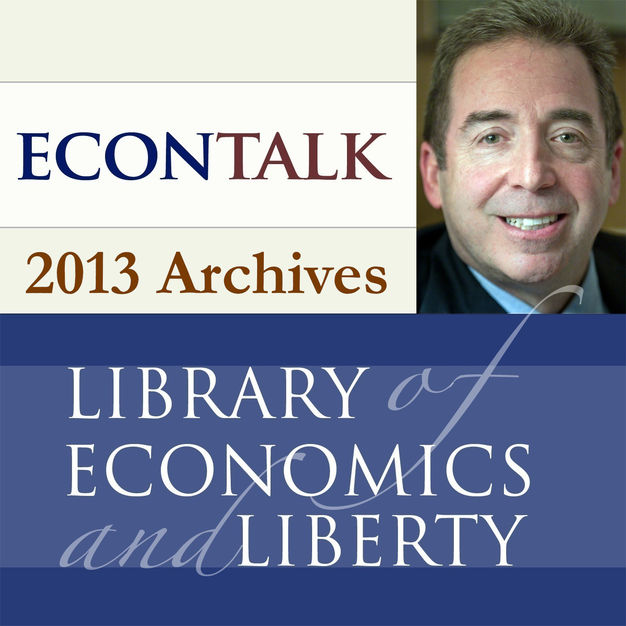 EconTalk Archives, 2013
EconTalk Archives, 2013